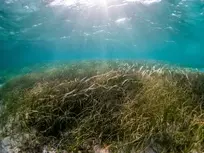

PROJECT PORTFOLIO
The Planet
VIEW GRANT RECIPIENTS


what OUR PARTNER says
"The University of Portsmouth and the Institute of Marine Sciences plays a key role within the Solent Seascape Project, leading the comprehensive biodiversity monitoring efforts. We are assessing species diversity, calculating carbon storage potential, monitoring water quality and nutrient levels as well as evaluating ecosystem connectivity.
We will continuously measure the overall health and biodiversity of the restored habitats, contributing invaluable data for the project’s conservation and restoration goals."
Institute of Life Sciences and Healthcare, the university of portsmouth

Ⓒ University of Portsmouth
GRANTS IN THE ENVIRONMENT - 2025
The University of Portsmouth
The University of Portsmouth (UoP) is a key partner in the 5-year Solent Seascape Project (SSP) with responsibility for monitoring the project’s activities and impact. UoP is a key partner in the SSP with responsibility for monitoring the project’s activities and impact.
These deliverables are set out in a ‘Monitoring Framework’ which was designed in conjunction with the ELSP and forms part of the SSP contractual agreements – these monitoring deliverables are considered essential to the successful completion of the SSP.
All members of UoP’s SSP team are involved in publishing SSP findings in open access scientific journals and making data and research available in open access repositories in order to ensure wide access.
Photo Credits
The University of Portsmouth, Luke Helmer, Paul Adams, Matt Jarvis.
GRANTS IN THE ENVIRONMENT - 2025
Funding Overview
The Solent Seascape Project aims to restore marine ecosystems and enhance biodiversity. The project began in November 2022, co-funded by ELSP (£3.6 million) and EHI (£1 million). Its focus is on restoring oyster reefs, seagrass meadows, saltmarsh, and seabird habitats.
The University of Portsmouth plays a critical role in monitoring and assessing the project's impact. UoP's monitoring deliverables account for 19% of the total project budget and responsibilities include:
-
Leading and coordinating data collection.
-
Meta-analysis of monitoring data collection across the SSP, and the interpretation of impacts of restoration at seascape scales.
-
Providing scientific oversight and continuity across restoration sites.
-
Supporting collaborative efforts with the SSP partners and ensuring methodological consistency.
-
Producing high-impact outputs including peer-review publications, policy briefs and stakeholder communications.
Budget cuts during the project proposal process have meant that the UoP have a funding gap; addressing this is crucial for the project's monitoring deliverables and to ensure continuation of critical data collection and analysis through 2027.
PROFESSOR JOANNE PRESTON, Reader in Marine Ecology and Evolution at the University of Portsmouth
Embarking upon a marine habitat restoration project at this scale is truly ground-breaking from a scientific perspective. It will be fascinating to compare the ecosystem benefits of restoration work here in the Solent – a temperate seascape - to those seen in tropical systems where restoration techniques are slightly further ahead.

GRANTS IN THE ENVIRONMENT - 2025
EHI Grant Impact
East Head Impact's grant of £87,500 for 2025-2026 will specifically be used for the purpose of enabling UoP to deliver the full SSP monitoring programme through to November 2027 in accordance with the Monitoring Framework, including the delivery of the biodiversity credit monitoring and carbon stock assessment.
Closing the identified funding gap will prevent the fragmentation of monitoring efforts and maintaining stakeholder confidence, as well as supporting the overall success and scientific integrity of the SSP.
Additionally, the EHI grant will:
-
enable coordinated delivery across the full monitoring framework,
-
enable the full ability to detect ecological responses and trends and,
-
enable complete data sets that strengthen the scientific robustness and policy relevance of the SSP.
Ⓒ University of Portsmouth
GRANT REVIEW
EHI Grant Impact on the SSP
Closing UoP’s funding gap would have the following impact on its monitoring deliverables specified in the Monitoring Framework:
-
Habitat use by mobile fauna: Fish tagging work would continue unaffected in Years 4 and 5.
-
Marine biodiversity associated with target habitats: Enable a final year of water (x2) and sediment (x1) sampling rounds and subsequent analysis.
-
Diversity and abundance of juvenile fish: the grant would enable the continuation of surveys at all restoration sites, Environmental Assessment surveys would continue and SSP wide meta-analysis would not have to be curtailed.
-
Carbon stock assessment: the grant will enable further carbon cores to be taken as well as isotope analysis to assess carbon connectivity and provenance to be undertaken - otherwise a reduced timeline may be insufficient to detect changes, particularly at sites where restoration began in 2024.
-
Water quality and clarity assessment: further funding will enable the continuation of UoP-led monitoring through to the end of the SSP in November 2027 - enhancing data integrity and analysis.
-
Nutrient concentrations: closing the funding gap will allow nutrient monitoring through to the end of the SSP in November 2027 allowing UoP oversight of data quality.
-
Biodiversity & carbon credit monitoring: the grant will enable the monitoring of the biodiversity credit site in Chichester Harbour in collaboration with Blue Marine Foundation through to the end of the SSP in November 2027 as well as the provision of essential data to inform credit and natural capital market development.








